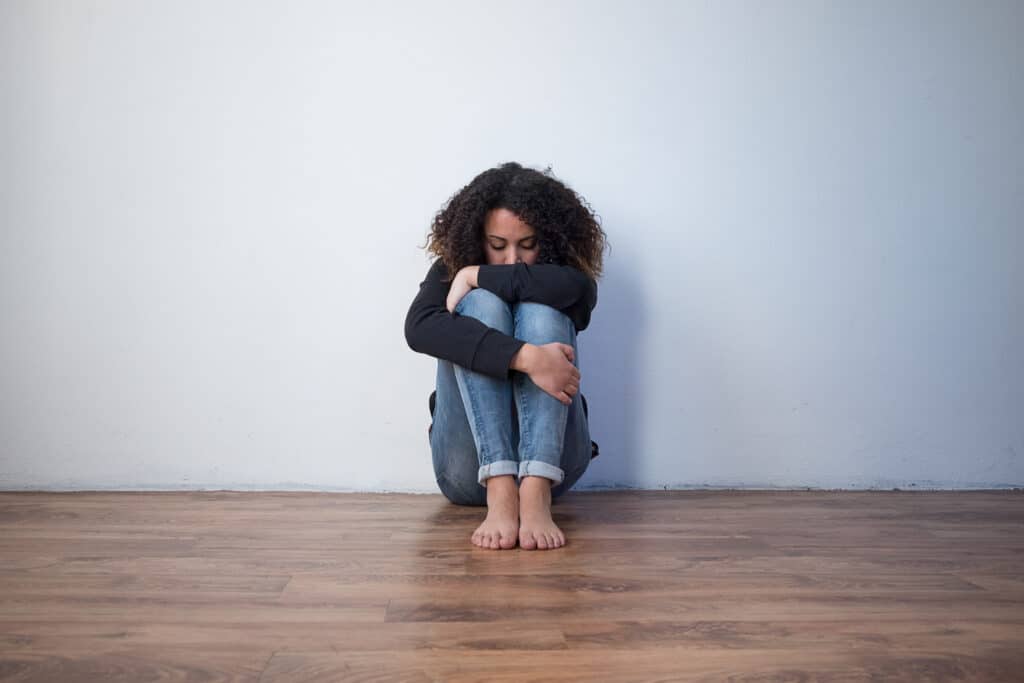Sexual Trauma & Rape
We live in a world where sexual trauma is on the rise. We will treat any sexual trauma that you have suffered no matter how long ago it occurred. We can help your partner and your children if they are suffering from any effects or have suffered from sexual trauma themselves.
If you or someone you love is suffering from sexual trauma or rape we are ready to help. We invite you to contact us with any questions. We offer a free confidential consultation with a licensed therapist so we can begin to bring peace back into your life.
The experience of watching a loved one suffer from a sexual trauma can take its toll. Many loved ones of people experiencing sexual trauma find they, too, could benefit from counseling.

Sexual Trauma and Rape FAQs
What Are Some Symptoms of Sexual Trauma & Rape?
- Re-experiencing Flashbacks, Bad Dreams, Frightening Thoughts
- Avoiding Places, Events or Objects That Trigger Memories of the Traumatic Experience
- Avoiding Related Thoughts and Feelings
- Easily Startled
- Tense or “On Edge”
- Difficulty Sleeping
- Angry Outbursts
- Trouble Remembering Key Features of the Traumatic Event
- Negative Thoughts About Oneself or the World
- Distorted Feelings Like Guilt or Shame
- Loss of Interest in Enjoyable Activities
How Common Is MST?
Data indicates that 1 in every 3 women are raped while in the military and 1 in every 71 men. Data also indicates that 86 percent of service members do not report their assault. Currently, there is not a national sexual offender database for the military and shame is often mistakenly put on the victims. Some of these victims are ostracized and their careers are oftentimes affected.
How Does Sexual Trauma or Rape Affect People?
The effect sexual trauma can have on an individual varies from person to person. Everyone deals with trauma in their own way. Some individuals may notice that the effect of sexual trauma can manifest itself years later. In addition to PTSD, feeling depressed is very common and is often diagnosed after sexual trauma. Being a survivor of this type of trauma can be exhausting. Individuals may feel numb, have trouble sleeping, experience disturbing nightmares or have difficulty concentrating. Individuals may find themselves self-medicating with drugs or alcohol to help them cope with the memories. They may notice triggers that remind them of what happened. It is very common after sexual trauma to try to avoid these triggers. People who have experienced sexual trauma may avoid sexual activity and places or people that remind them of the event, not feel safe and always feel on edge.
We have treated individuals that become so discouraged about the sexual trauma that they became suicidal. They report having low self-esteem and feeling worthless. Many individuals think that the trauma was somehow their fault. Regardless of the circumstances, these feelings need not be permanent. Despite how hard an individual may try to “get over it,” many times sexual trauma therapy is required. If you have experienced sexual trauma, you need care, comfort and a way to begin to heal.
What is Secondary Wounding?
Coping with sexual trauma by itself is difficult enough. However, the response we may receive from others when we disclose what has happened can hurt us and be just as harmful as the trauma itself. Secondary wounding can be defined as the trauma we may receive when we are not believed, when we are blamed, when we are not heard, or when we are judged after we have disclosed the sexual trauma. It can lead to depression and often exacerbate symptoms.
What If I’ve Been to Sexual Trauma Therapy Before and It Didn’t Do Any Good?
One of the most important things to understand is that sexual trauma is unique in the aspect that “talk therapy” (therapy where you and the therapist just talk) has been proven to be ineffective in helping to alleviate symptoms. The therapist that you see needs to know how to work with trauma and use modalities that have been proven by research to reduce your symptoms. We have experience and success in using these tools.
What If I Feel Like It Was My Fault?
We understand you may feel that you are to blame and wish that things could have been different. It can be very discouraging living with thoughts that you should have or could have done something differently to try and prevent what happened. This is a very common thought that often accompanies sexual abuse. It can prevent individuals who could benefit from receiving treatment from getting help. The difficult thing to understand is that the only person that could have prevented the assault is the person who assaulted you. It doesn’t matter how much you had to drink, what you were wearing or what time of the day or night it happened. How you reacted also does not determine if you were to blame. For example, if you froze, fought or tried to run does not matter. The majority of sexual assaults are perpetrated from someone that you know and felt you could trust. This can lead to additional feelings of confusion, hurt and betrayal. We can help you with those feelings of self-blame so that you can move forward and finally feel peace.
I Don’t Feel Like My Partner Understands. What Should I Do?
It can be very difficult to explain how you are feeling and express yourself when you feel confused. Partners may need therapy and educational information to help them understand the trauma you have endured. Very often partners may experience intense anger and frustration, feeling like they couldn’t protect you. They often feel hopeless in their efforts to help you feel better. Many may be suffering from secondary trauma (trauma that occurs from hearing what happened) and not knowing how to react or help. It can be difficult feeling like you are falling apart, but feel that you need to hold it together and comfort your partner at the same time. We have experience in treating both you and your partner and provide empathy, training and support so that everyone can understand the pathway to recovery and regain the power that was lost.
What If I Don’t Live Close By? What Are My Options?
If you are located in Utah we have the ability to do all of the necessary preparation work over the phone, including follow up care. When you are ready for the reprocessing part of therapy, we will need to see you in our office. Even if you live out of state, we have successfully helped clients book appointments every day of the week, which allowed them to complete therapy in about a weeks time. Please call us for details.
What Should I Look For In a Sexual Trauma Therapist?
- Does your therapist have experience treating complex trauma?
- Do they have experience treating military sexual trauma?
- Are they trained in the top modalities that can help reduce your symptoms? These modalities include EMDR (eye movement desensitization reprocessing, PE (prolonged exposure) or CPT (cognitive processing therapy). If not, what are they using? Does their research show that their therapy can actually reduce symptoms? Remember just talking about it (talk therapy) doesn’t work.
- How much training and experience do they have using these tools with sexual trauma?
- Do they feel comfortable hearing the worst of the worst involving war, death, abuse or whatever you may be suffering? Believe it or not, some therapists are not trained or capable of helping people who suffer from trauma and, as a result, therapy can do more harm than good.

